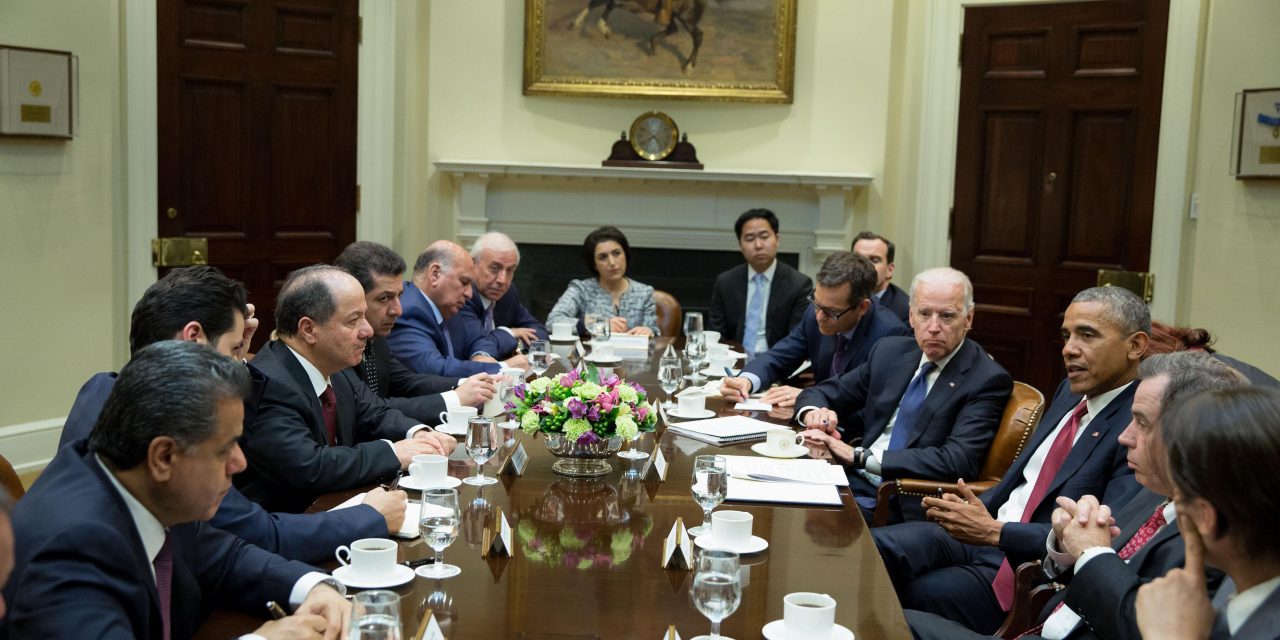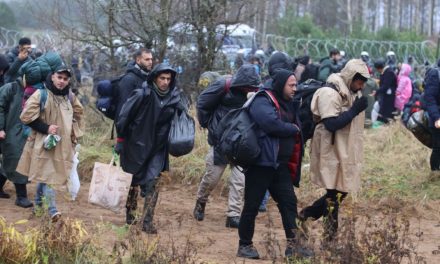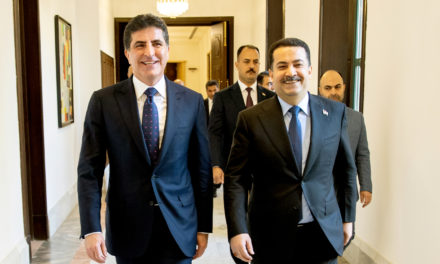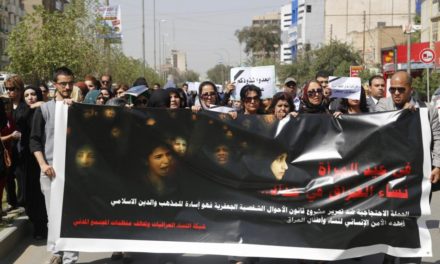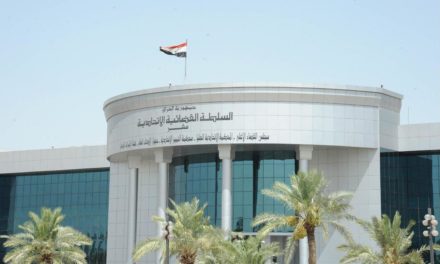(Photo: Vice President’s Archive)
There has never been a U.S. president-elect more well-versed in Kurdish affairs than Joe Biden. Not only was Biden vice president when U.S.-Iraqi Kurdish relations reached their apex, but he also served decades on the Senate Foreign Relations Committee during a time when U.S. policy consideration of the Kurds went from neglect to persistent engagement. While Biden opposed Operation Desert Storm in 1991, a military intervention which launched a cascade of events that ended with Iraqi Kurds winning de facto autonomy, he chaired the Committee during the September 11, 2001 terror attacks and ultimately voted for the 2002 Authorization for Use of Military Force Against Iraq, although he later expressed regret for his vote.
Biden may best be known in Iraq for a 2006 New York Times op-ed, “Unity Through Autonomy,” co-written with Leslie Gelb, a Carter-era assistant secretary of State and president of Council on Foreign Relations, in which he proposed dividing Iraq along ethnic and sectarian lines. That article showed surprising ignorance toward Iraq’s complicated geographical and anthropological landscape. In fairness to Biden, however, it appears that Gelb was the true author and Biden merely attached his name for publicity. Moreover, Biden simply embraced too uncritically the talking points of Kurdish representatives, donors, and de facto lobbyists in the United States. Regardless, Biden retracted his endorsement for such schemes while vice president, a period during which he visited Iraq two dozen times.
The lesson Biden should draw from the blowback to his article is there are no easy solutions to the problems Iraq faces and any panacea is too good to be true. Whether Biden and Tony Blinken, his long-time top aide and frontrunner to be secretary of state, have learned this lesson is yet to be seen. The critical issue is whether or not Biden avoids the Barzani trap.
Biden will inherit an Iraq in flux with more than 40 percent of Iraqis born after 2003. Fifteen months ago, Iraqi youth took to the streets in protest of endemic corruption and the venality of a political class more interested in dispensing patronage among themselves than in stabilizing Iraq’s economy. In the process, hundreds of protestors were killed by Iranian-backed militia-men, who fired into the crowds. With the tyranny of Saddam Hussein and Da’ish behind them, Iraqis were unwilling to subordinate the hope of freedom to the force of an oppressors’ arms. Rather than disperse, the protests grew and ultimately unseated Prime Minister Adil Abd Al-Mahdi.
After two false starts, Iraq’s myriad political factions in Parliament and unofficially, Washington and Tehran, ultimately agreed on Mustafa Al-Kadhimi as interim prime minister. Kadhimi held and continues to hold the position of head of the Iraqi National Intelligence Service. Kadhimi’s mandate, first and foremost, is to manage a caretaker government until elections can be held under a reformed election law that, in theory, will shift power from political party bosses to constituency-based electoral districts. While Kadhimi has called for elections in June 2021, it is unclear both whether the government will meet that deadline and whether the patience of Iraqis will hold out if it does not. Meanwhile, Iraq’s financial situation remains dire, and the messy competition for primacy in Iraq by Iran, Turkey, and the United States threatens to unravel Iraq’s tenuous stability.
Kurdish leaders have long juxtaposed the Iraqi Kurdistan Region’s stability against the supposed instability of the rest of Iraq. Certainly, there has been far greater violence in Baghdad and southern Iraq than in Iraqi Kurdistan. But Kurdistan’s swank public relations’ campaign as “The Other Iraq” has a dark side: since the restoration of sovereignty, Iraq has had six prime ministers and four presidents. Iraqi Kurdistan has had two presidents—both from the same family—and three prime ministers, two of whom came from the same family.
Iraqi Kurdistan may bill itself as a democracy, but it has never been one. Today, it has evolved from a simple autocracy into a kratocracy. The Barzanis have acquired their wealth by force, corruption and abuse of power. While former regional president Masoud Barzani and his nephew Nechirvan Barzani, previously the regional prime minister and today the president, did not hesitate to use force when necessary, they also understood that it is preferable to convince and co-opt. Masoud’s son Masrour, a former intelligence chief, prefers brute force and prioritizes intimidation over respect. In the last several months, for example, Kurds say Masoud’s intemperate and spoiled son has caused the disappearance of 200 journalists, intellectuals, and civil society activists. Meanwhile, the Barzanis have driven their oil-rich region into bankruptcy. The Kurdistan Regional Government took an oil-rich region just two-thirds the size of West Virginia and drove it more than $25 billion in debt. While the Barzanis live like kings and buy multimillion dollar real estate in McLean, Beverly Hills, and London, ordinary Kurds struggle as salaries go unpaid for months at a time. Masrour’s public excuses that he inherited the dire situation but bears no responsibility may be a crude attempt to shift blame to his cousin Nechirvan, but it is one for which Kurds have little patience. Simply put, Iraqi Kurdistan has become a pressure-cooker whose stability is increasingly in doubt, but which requires an influx of foreign funds to buy just a little more time.
There has long been divergence among Iraqi Kurdish officials as to how they should approach Baghdad. Generally speaking, this has mirrored the Kurdistan Democratic Party (KDP) and Patriotic Union of Kurdistan split. While Barham Salih, the current Iraqi president and a former prime minister of Iraqi Kurdistan, has long argued that Kurdish security requires a strong, stable and democratic Baghdad, Masoud and Masrour Barzani have believed the opposite: that their strength requires a weak Baghdad. This is one reason why Masrour Barzani diverted military equipment provided by Western powers to fight Da’ish. To survive now, the Barzanis seek to convince the Americans that Iraq is hopeless and the region of Iraqi Kurdistan they control is the haven Americans require.
As such, it increasingly appears that the Barzanis seek actively to undermine reform and hamper Kadhimi’s efforts to stabilize the country. Economically, the Kurds have become the biggest impediment to reform. Their efforts to undermine Finance Minister Ali Allawi—and Kadhimi’s lack of resolve in standing up to the Barzanis—nearly led to Allawi’s resignation last August.
Nor are the Barzanis onboard with true electoral reform. Rather than dismantle the role of unelected and unaccountable power brokers, they have sought to reinforce it by gerrymandering the district map in Nineveh and Kirkuk. It is against this backdrop that the latest Sinjar Agreement should also be understood: the KDP seeks to win by fiat and through force what they could never win at the ballot box.
Kurdish efforts to undermine Baghdad are at their most malignant in the political sphere. While ordinary Kurds view prominent Shi’a politicians like former Prime Minister Nouri al-Maliki with disdain both because of his rampant corruption and the vision of society he espouses, the Barzanis have long partnered with him. The same has traditionally been true with Abd Al-Mahdi. Within Baghdad and Erbil, both Shi’a militiamen and KDP functionaries saw the October burning of the KDP office as mutually beneficial by rallying their own core supporters, while weakening the position of the Kadhimi government. Indeed, while the arson was reprehensible, both Kurds and Arabs recognized the cynicism behind Barzani’s crocodile tears given the KDP’s own habit of burning opposition offices.
Back to Biden. The president-elect is an astute politician and recognizes whatever electoral mandate he has is to concentrate on domestic issues. He, Blinken, and other top advisors may care about Iraq, but there is a limit to the amount of political capital they can spend trying to stabilize the country. Iraq is not an American political football, however, and its fate certainly does not depend on the whims of Washington. Still, a political desire for an easy solution and a credulous belief that the Kurdistan Regional Government’s representative and many lobbyists are telling the truth will backfire. Just as when Senator Biden learned in the aftermath of his op-ed’s appearance in the New York Times 14 years ago, President Biden should recognize that there are no shortcuts to Iraqi stability or curtailing Iranian inroads into the country. The only solution is the long game: supporting security, stability, and the building of a resilient democratic system throughout the entirety of the country. The choice between Baghdad and Erbil is not either/or, it is both.

Michael Rubin
Michael Rubin is a resident scholar at the American Enterprise Institute in Washington, D.C.

